The Ethereum Foundation smiles faintly and sells 100 ETH again…
Written by: Azuma, Odaily Planet Daily
The world has long suffered from the Ethereum Foundation (EF).
As the community's disappointment with ETH's weak performance this cycle gradually accumulates and eventually erupts, calls for reforming the EF have grown louder.
In the past few days, the entire Ethereum community has been discussing the EF's leadership structure, personnel composition, operational model, and financial plans. Current EF Executive Director Aya Miyaguchi has faced public criticism from the community, and Vitalik himself has been under pressure to publicly state that "a large-scale reform of the EF leadership structure is underway."
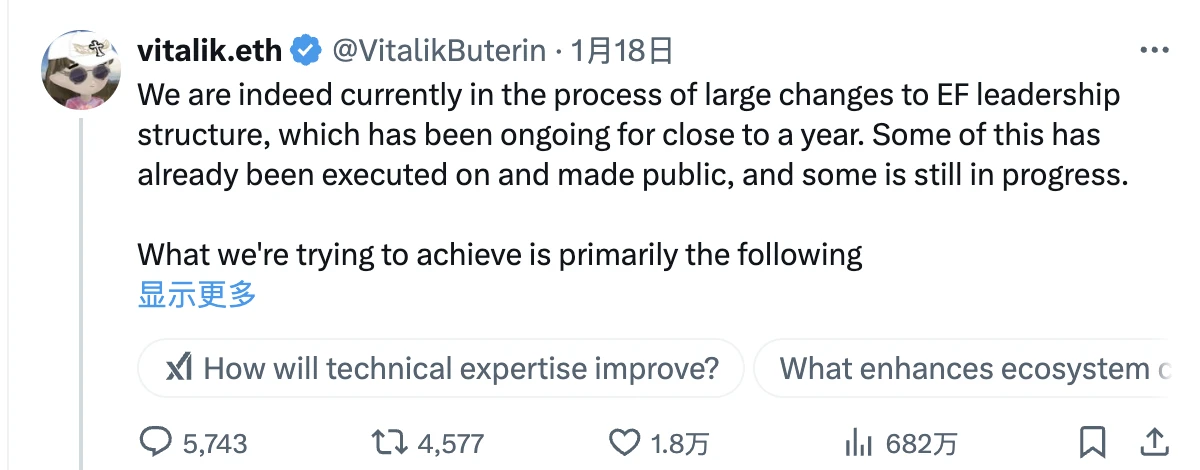
As of this Monday, discussions have deepened. Founders and executives from several leading projects in the Ethereum ecosystem have stepped forward to criticize the EF for its numerous faults, indicating that major projects have long harbored grievances regarding Ethereum's performance.
Below is a collection of viewpoints compiled by Odaily Planet Daily.
Synthetix, Infinex Founder: EF Should Require L2 to Use Revenue to Buy Back ETH
Kain Warwick, founder of Synthetix and Infinex, was the first to strike.
On Monday afternoon, Kain posted on X, stating: "If I were to run the EF, I would definitely pressure Layer 2 to use sequencer revenue to burn ETH. Ethereum has a significant advantage in this negotiation…"
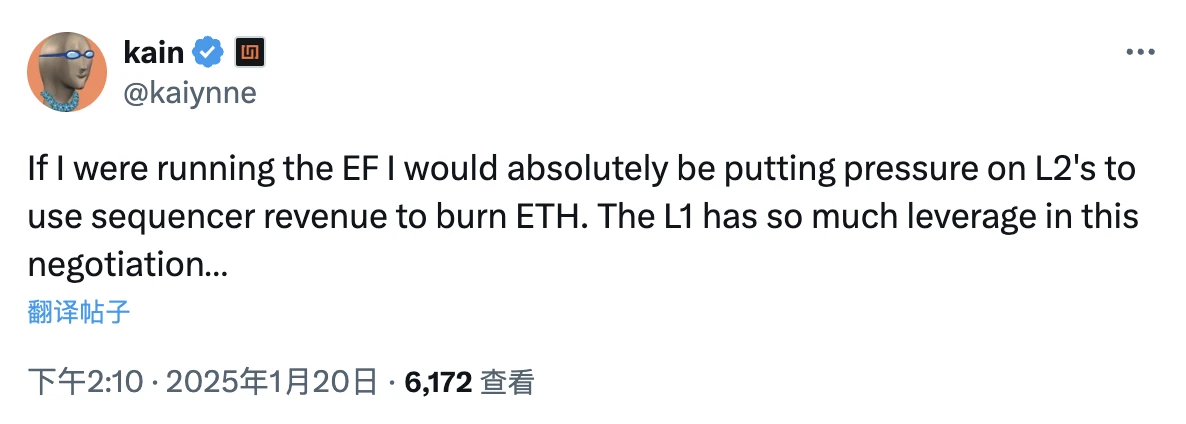
Curve Founder: EF Should Immediately Abandon L2 Strategy
Following Kain, Curve Finance founder Michael Egorov also criticized Layer 2, but with more aggressive language.
On Monday afternoon, Egorov posted on X that the EF's primary task should be to abandon the Layer 2-centric roadmap and instead focus entirely on expanding Layer 1.
In subsequent discussions with community members, Egorov bluntly stated: "Layer 2 is not a moat; it’s a band-aid."
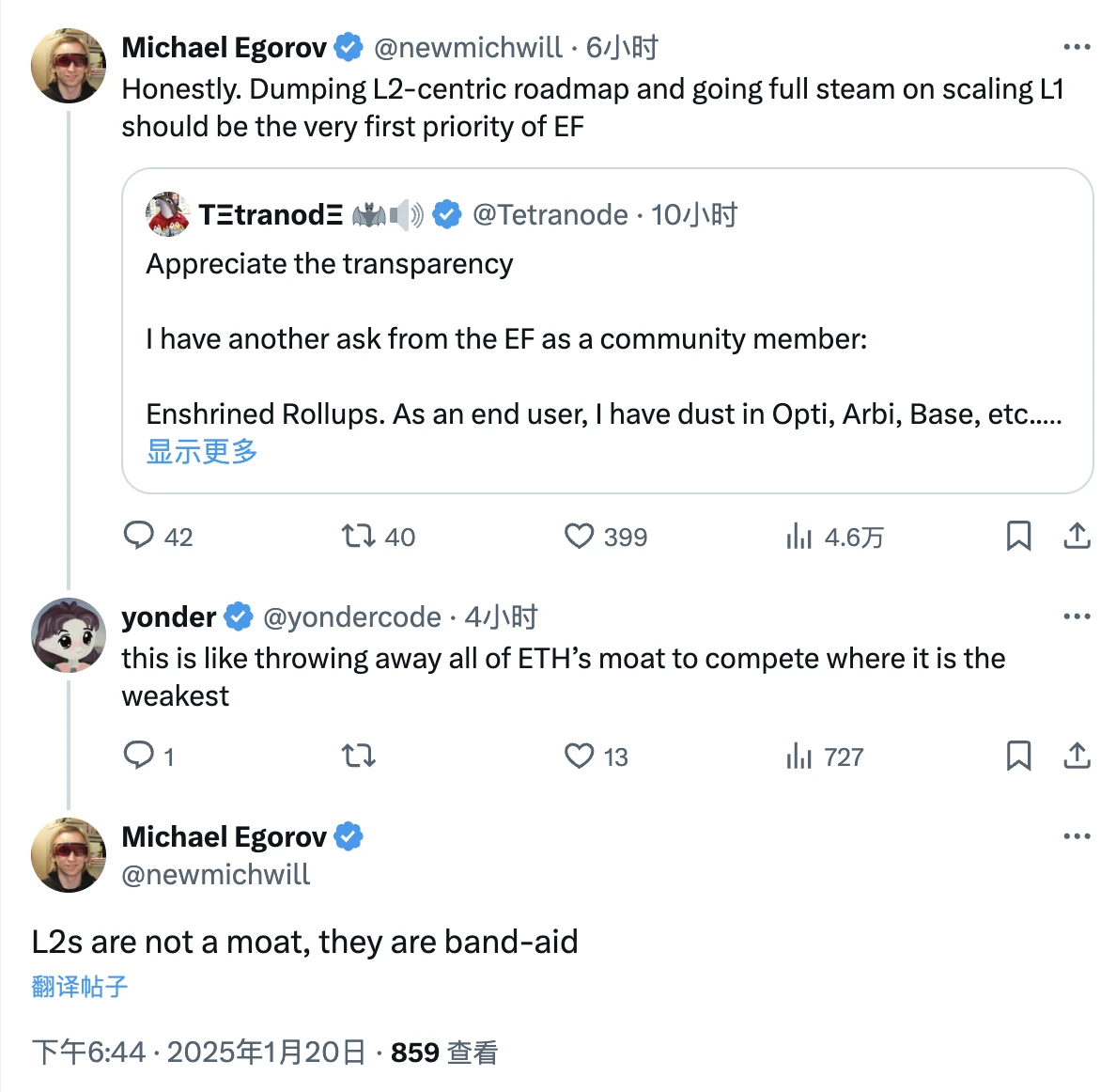
Aave Founder: 12 Measures to Save EF
In the evening, Aave founder Stani Kulechov posted a lengthy message on X, stating that he had read the EF's annual budget report and believed that the EF needed to undergo thorough reform in 12 areas to achieve better sustainability:
Immediately reduce the burn rate from $130 million to $30 million;
Reduce the number of employees to 80;
Carefully review who can stay. Remove senior positions, consultants, any part-time roles, interns, freeloaders, cockroaches, and parasites;
Prohibit consultants or any conflicts of interest;
Ensure that 80% of employees are technical staff;
Split all technical teams into small 5-person teams, each focusing on specific areas and expertise;
The leadership should be a 5-person committee, selected based on performance, with one serving as chair responsible for VB;
Part of the non-technical team should focus on financial management (to be done internally);
Diversify finances by investing in various long-term sustainable assets (LRSTs), as well as DeFi and non-DeFi projects with good fundamentals and profitability, built on Ethereum;
Diversify staking rewards into stablecoins and invest in DeFi;
Borrow from Aave to manage finances and time sales when ETH performs better than other assets;
Create a sustainable revenue model from trading or staking fees to fund a reasonable EF budget.
Former Growth Head of Ethena: EF Should Focus on DeFi
The recently resigned former growth head of Ethena, also the former expansion head of Lido, Seraphim, also shared his views on EF reform.
Seraphim mentioned that Ethereum needs two paths for self-rescue: first, the EF should focus on DeFi; second, Consensys, led by Ethereum co-founder Joseph Lubin, should emulate Microstrategy's approach to BTC. If these two points can be achieved, ETH will soon break through $6000.
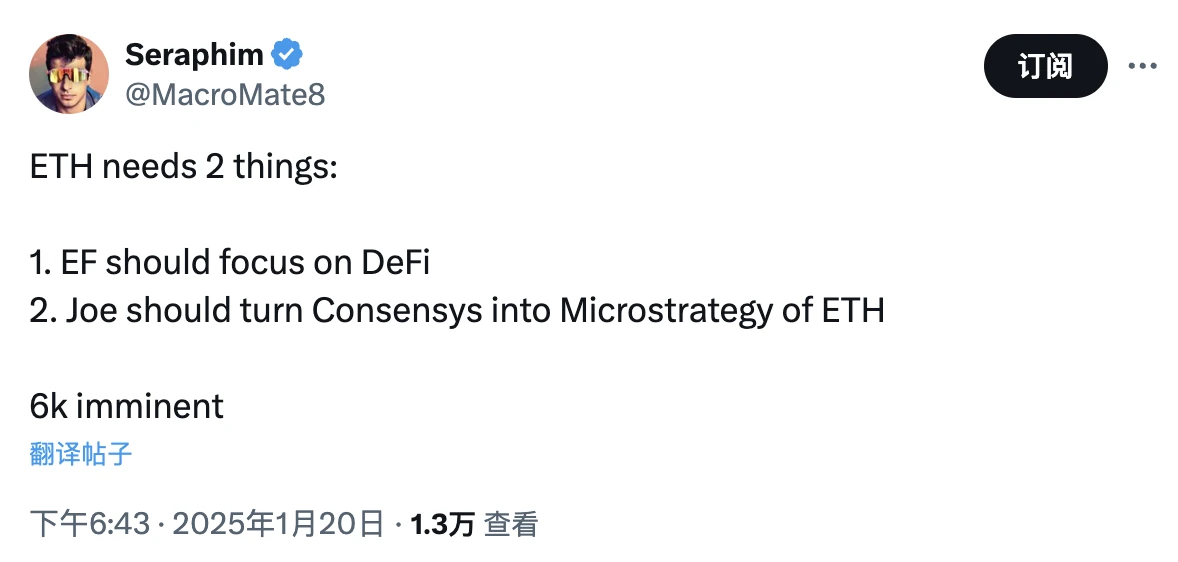
Wintermute Founder: Potential Death Spiral of Ethereum
Wintermute, a top market-making institution in the industry, while not exclusively part of the Ethereum ecosystem, has directly participated in market-making for many Ethereum ecosystem projects, so its statements also have significant implications for Ethereum.
In the evening, founder and CEO Evgeny Gaevoy discussed the potential death spiral of Ethereum.
Evgeny stated that Ethereum's biggest internal contradiction is: the more ETH is used for "gambling," the more finance-related Dapps run on Ethereum, the higher the price of ETH and its security; conversely, if there is no gambling and ETH is only used for transfers on Zazulu, then the price of ETH will be very low, and its security will also be low. As ETH's price declines, the number of Dapps that still consider Ethereum secure will decrease and flee to other chains, further lowering ETH's price, which could lead to a significant death spiral.
Therefore, any blockchain must incorporate gambling, speculation, and broader financial applications as part of its product; otherwise, it will be seen as unsafe.
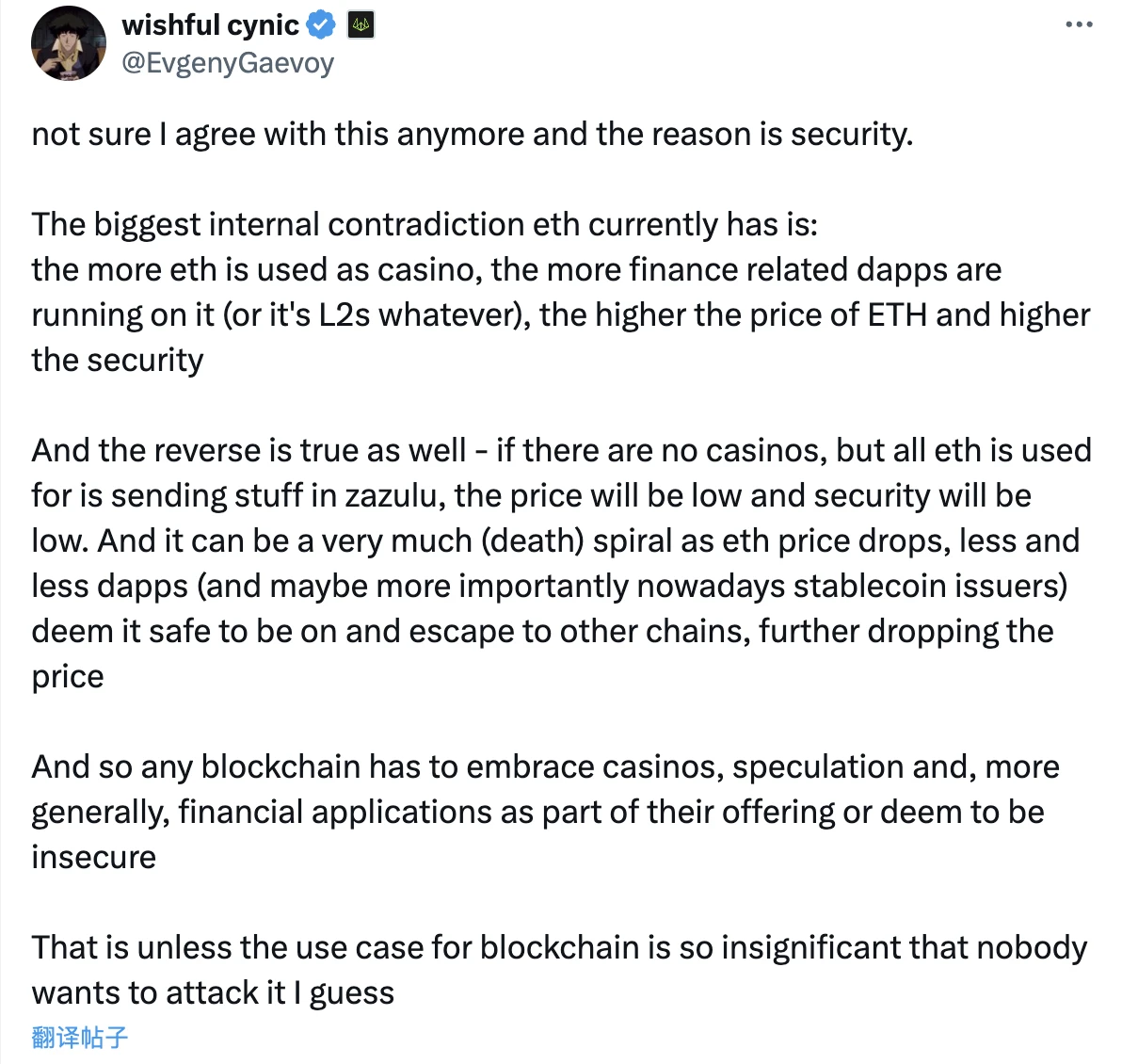
In the face of public anger, EF chooses to sell again…
Amidst the community's collective condemnation and unresolved anger, the EF has once again chosen an unexpected course of action.
Around 6:20 PM, the EF's address for small high-frequency ETH sales, 0xd77…1f4, sold 100 ETH again, with an average selling price of $3364.
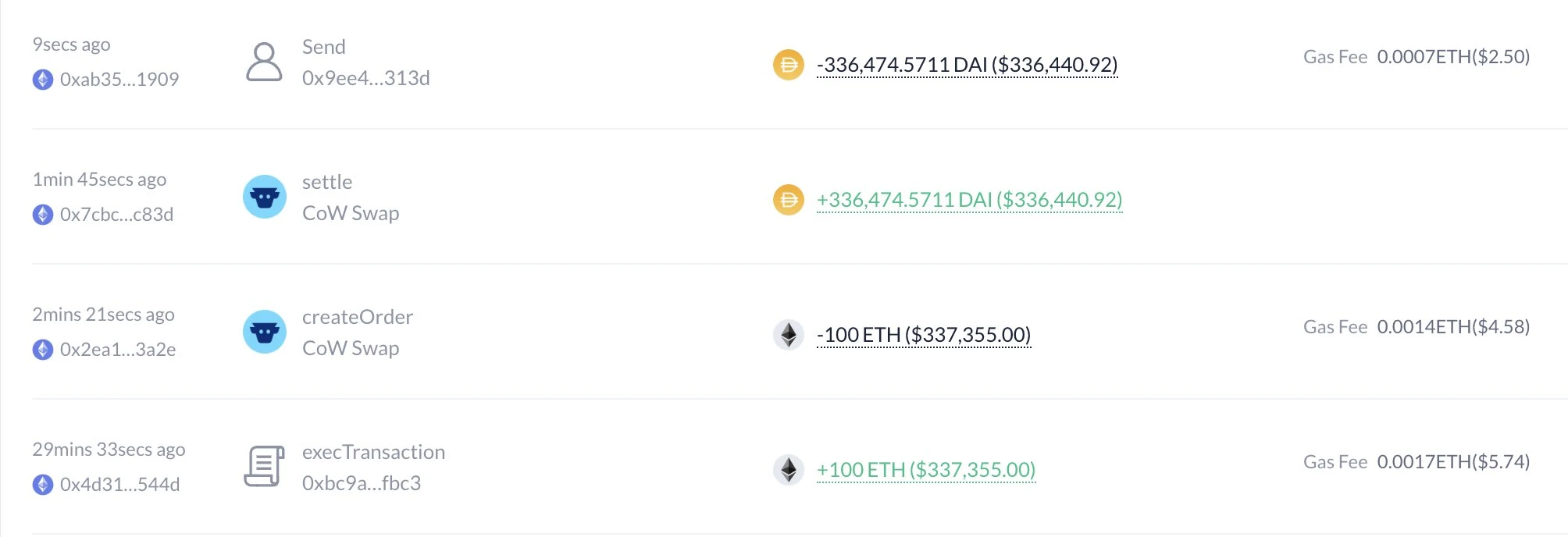
As a long-time holder of ETH, I find it hard to imagine why the EF would make such a "low total value but highly symbolic" move at such a sensitive time, especially when the community actively suggests that the EF use staking rewards instead of direct sales, a proposal that Vitalik has acknowledged will be further explored.
You read that right; as the top organization in the Ethereum ecosystem, the EF has not even staked the ETH it holds. Vitalik's explanation is that there are concerns about regulatory issues; secondly, the neutrality of the EF is at stake. If the EF stakes on its own, it would force them to take a position on any future contentious hard forks.
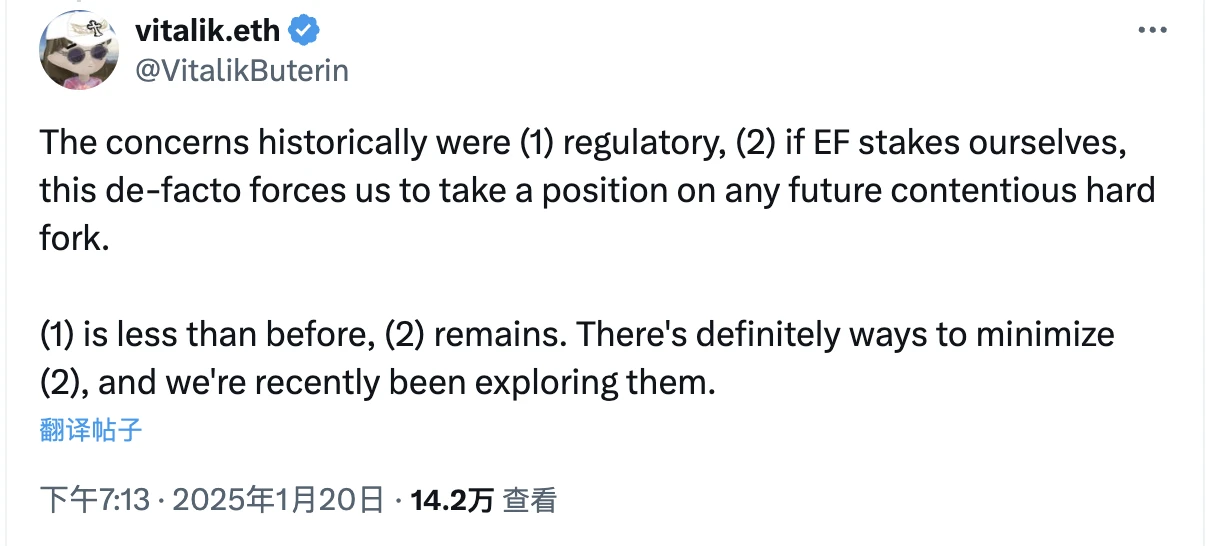
Regulatory issues aside, in fact, with the overall relaxation of the regulatory environment, this is gradually becoming a non-issue.
As for the second point, does this explanation really hold water? With Solana closing in and competition reaching a life-or-death stage, the EF is still "avoiding suspicion" for future hypothetical situations.
Oh, by the way, the EF also seems unconcerned about competition — today, the Ethereum community dug up Aya Miyaguchi's previous statement in an interview: "I am training people to say no to a culture of competition and winning."

At a loss for words, I hope the day of true reform comes soon.
免责声明:本文章仅代表作者个人观点,不代表本平台的立场和观点。本文章仅供信息分享,不构成对任何人的任何投资建议。用户与作者之间的任何争议,与本平台无关。如网页中刊载的文章或图片涉及侵权,请提供相关的权利证明和身份证明发送邮件到support@aicoin.com,本平台相关工作人员将会进行核查。



